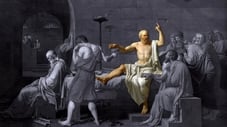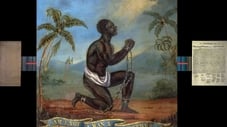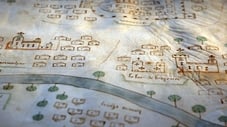Denis van Waerebeke — Director
Episodes 11
33 AD: The Crucifixion of Jesus
Christians believe Jesus is a man who preached and performed miracles and died on the cross but was resurrected. But for historians, the crucifixion is the least unreliable indicator of the Jesus' existence.
Read More323 BC: Death of Alexander the Great
Alexander’s death marks the loss of the greatest conquerors in History, the only man who managed to extend the Empire to Eurasia, the Mediterranean and India. Different versions of The Romance of Alexander were found in the Persian, Arabian and Latin regions of the world, but also in Mali.
Read More1492: The New World
1492 was officially the year the Americas were 'discovered', marking the end of the Middle Ages. Yet it's possible that Christopher Columbus setting foot on a West Indian beach in October obscures a far more complex story.
Read More11 February 1990: Liberation of Nelson Mandela
“I stand here before you not as a prophet, but as a humble servant of you, the people” : those are the first words pronounced by Nelson Mandela after his release from prison, after 27 years of incarceration. The event struck a chord worldwide, reminding us that South Africa, historically, was not only the first country to be colonised but also the last country to be decolonised.
Read More1431: The Fall of Angkor
The fascinating discovery of Angkor’s ruins conveys images of magnificence and splendour : we’d like to believe in the idea of a lost civilisation, as was the case for the Roman Empire. Yet, the study of the ruins of these monumental temples gives no sign of any brutal disappearance : monumental inscriptions.
Read More315 - The Donation of Constantine
In the middle of the 8th century, the chancellery of the bishops of Rome was on the verge of becoming a spiritual heir to the Western emperors. That was when it committed the most important forgery in the history of the West.
Read More1911 - The Conquest of the South Pole
In 1911, the expedition led by the Norwegian Amundsen reached the South Pole, beating the British Scott to the punch. The story of the conquest of the poles is the last chapter of a long epic, closing the age of the great scientific explorations that began at the end of the 18th century and became extraordinarily popular since the end of the 19th century.
Read More-399 - The Trial of Socrates
Why was Socrates condemned by the city of Athens? Was the figure of the master thinker, who could subvert the youth, really a danger to a Greek democracy that was more idealized than it was understood?
Read MoreJuly 4 1776 - The American Declaration of Independence
The American revolution is sometimes watered down to the point where it can become an almost silent revolution.
Read More1000 - The Millennium
What happened in the year 1000? Nothing: this date does not correspond to any major event. The passage from the first to the second millennium was not really an event for those who lived through it. The infamous “Terrors of the Year 1000” were largely an invention of 19th century Romantic historiography.
Read MoreSeptember 11 1973 - The Other September 11 - The Military Coup D'Etat Against Allende
Before the attacks of 2001 took its place, September 11 was associated with another global event: that of the overthrow of the socialist government of Popular Unity by the Chilean armed forces, supported by the American secret service, in 1973.
Read More










